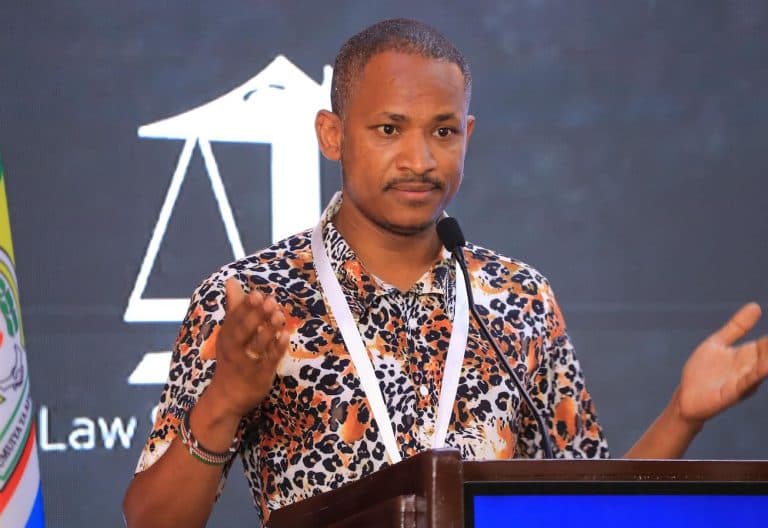We're loading the full news article for you. This includes the article content, images, author information, and related articles.
Embakasi East MP Babu Owino has called on young Kenyans to register as voters at IEBC constituency offices before engaging in weekend activities, including watching English Premier League games. This appeal aims to boost youth participation in the ongoing continuous voter registration drive.

Embakasi East Member of Parliament Babu Owino has launched an appeal to young Kenyans, urging them to prioritise voter registration before participating in popular weekend activities such as watching English Premier League (EPL) matches. In a message shared on X (formerly Twitter) on Saturday, October 4, 2025, Owino specifically encouraged Nairobi youth to visit Independent Electoral and Boundaries Commission (IEBC) constituency offices to register.
Owino, a member of the Orange Democratic Movement (ODM) party, dismissed the perception that young people are only active online and disengaged from electoral processes. His call comes as the IEBC continues its nationwide voter registration exercise, which resumed on September 29, 2025, in preparation for the 2027 General Election.
Youth, defined in Kenya as individuals aged between 18 and 35, constitute the largest demographic in the country, representing approximately 75% of the total population. Despite this significant demographic presence, youth voter registration and participation have historically been low. Data from the 2022 General Election showed that only 39.84% of eligible youth were registered to vote, a decline of 5.17% from 2017 figures. This low engagement is often attributed to disillusionment with the political class, perceived corruption, and a belief that their votes do not significantly influence election outcomes.
The IEBC aims to register 6.3 million new voters before the 2027 general elections, with a target of 70% being youth. The continuous voter registration exercise allows eligible Kenyans to register, transfer their registration, or update their details at any IEBC constituency office, excluding areas with ongoing by-elections.
The Kenyan Constitution, under Article 83, guarantees every citizen aged 18 and above with a valid ID or passport the right to register as a voter. Article 55 further mandates the state to take affirmative action to ensure youth representation and participation in political spheres. Additionally, the Political Parties Amendment Act 2022 requires political parties to allocate 15% of their positions to individuals under 35, aiming to increase youth involvement in party decision-making and candidacies.
Political leaders, civil society groups, and former electoral officials have consistently urged youth to participate in the electoral process, warning that apathy could strengthen incumbents. However, structural barriers such as lack of access to national ID cards, confusion about voting procedures, and the cost of travel to registration centres continue to hinder youth participation. Unemployment and financial constraints also pose challenges for young people seeking to run for office.
Continued low youth voter turnout risks their voices being under-represented in policy-making and governance. This can lead to policies that do not adequately address their concerns, such as unemployment and economic hardship, further perpetuating disillusionment. Active youth participation is crucial for a robust democracy and for shaping a future that reflects the aspirations of the largest demographic bloc.
The effectiveness of ongoing voter registration drives and the strategies employed by political leaders and civil society to mobilise young people will be critical. The IEBC's progress towards its target of 6.3 million new voters, particularly among the youth, will indicate the potential for increased youth engagement in the 2027 elections.
Debates on electoral reforms, youth empowerment initiatives, and the role of digital activism in political mobilisation.
Keep the conversation in one place—threads here stay linked to the story and in the forums.
Sign in to start a discussion
Start a conversation about this story and keep it linked here.
Other hot threads
E-sports and Gaming Community in Kenya
Active 9 months ago
The Role of Technology in Modern Agriculture (AgriTech)
Active 9 months ago
Popular Recreational Activities Across Counties
Active 9 months ago
Investing in Youth Sports Development Programs
Active 9 months ago